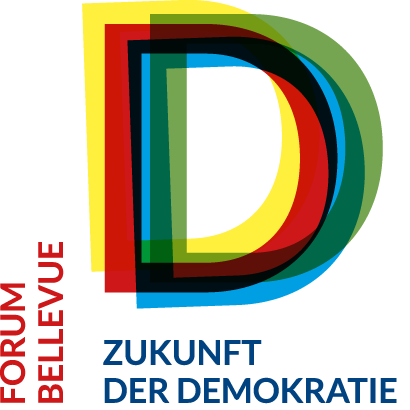"What Future Does the West Have?"
19 September 2017
In Berlin, Federal President Frank-Walter Steinmeier opened his new series of talks, the "Forum Bellevue on the Future of Democracy", with a speech calling on all citizens to stand up and fight for democracy. The German Federal President's series of talks being held in cooperation with the Bertelsmann Stiftung, began with the question: "What future does the West have?"
In Federal President Frank-Walter Steinmeier's view, the state of German democracy is fundamentally in good shape. In his opening remarks at the "Forum Bellevue", he explicitly refuted any grounds for alarmism. Contrary to what some may claim, he emphasized, there are no taboos and no bans on speech in German public debates. A diversity of opinions and disputes over them, as well as political competition, are part and parcel of Germany's political culture. So far in the history of the Federal Republic of Germany, no party has claimed to speak on behalf of the entire population. "Our democracy is stable," stated Federal President Steinmeier.
At the same time, he emphasized that "There's no reason to be too relaxed," referring to the challenges posed to democracy by social, cultural and technological change. He thus called on citizens to "look at the disruptive forces of our era." Federal President Steinmeier also criticized the fact that politicians are loudly booed and insulted or have things thrown at them and condemned any attempts to foster a climate of intimidation in an election campaign: "Throwing tomatoes and blowing whistles is no way to obtain greater knowledge in democratic discourse, just like aching ears do not prove that controversial arguments have been exchanged," said the Federal President. At the same time, he called for research into the reasons explaining why people in Germany do not feel represented or doubt whether "our state can solve today's truly urgent issues."
Federal President Steinmeier accused populist forces of trying to exploit public fears and disappointment. All democrats in the country must therefore stand up in opposition to such efforts by confidently cultivating and fighting for democracy. To be sure, a look at many other countries in Europe shows that freedom, the rule of law and human rights cannot be taken for granted. "Some societies seem to have been infected by the fever of authoritarianism," said the Federal President.
Liberal democracy must therefore be defended with conviction. Democracy is not a promise of salvation, it does not deliver final answers. "Democracy is a process of political learning," said Federal President Steinmeier, and that is precisely where its "strength lies in times of change, which is also what I believe."
With the discussion series "Forum Bellevue on the Future of Democracy", the Federal President aims to facilitate efforts to defend an open, democratic society. U.S.-American philosopher Susan Neiman, the Indian-American political scientist Parag Khanna and the historian Heinrich August Winkler were invited to the opening session titled "What Future does the West Have?"
Winkler, author of the multi-volume The Age of Catastrophe: A History of the West, recalled the difficult and long path Germany took to become a leading nation in the West after 1945. He expressed concerns regarding the future of the West's community of values. The European Union in particular cannot survive a permanent coexistence of liberal and – as the Hungarians and Poles self-identify – illiberal democracies.
Looking in a different direction, Parag Khanna put forward his idea of a direct technocracy, which is characterized less by democratic compromise than by the state's capacity to deliver common good-oriented outcomes through fact-based decision making. This type of approach could counteract the alienation of citizens from politics.
Stressing that a state is not to be equated with a company, Susan Neiman pointed to the fact that in a Western democracy, prosperity and efficiency are not the only important values – culture, for example, is also essential. In response to the question of the U.S. view of the West, Neiman pointed out – with regard to the current U.S. administration – that the United States is a socially and politically diverse country.
The speech of the Federal President for the event can be downloaded here. (pdf).

